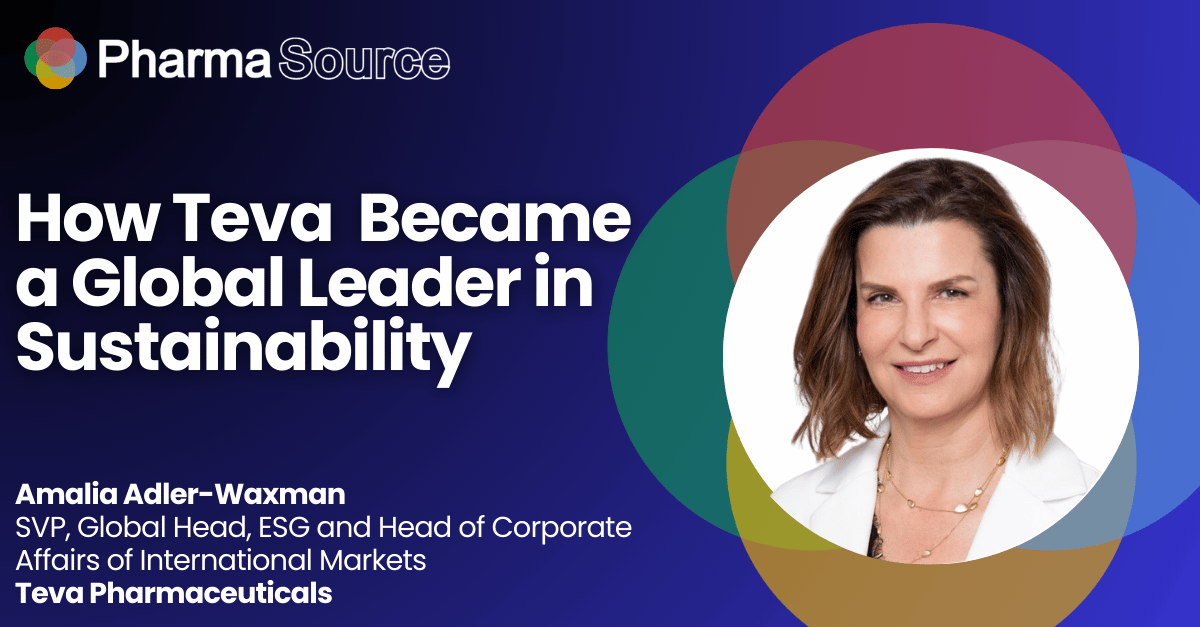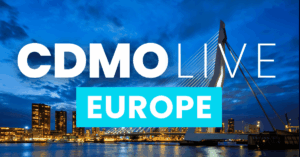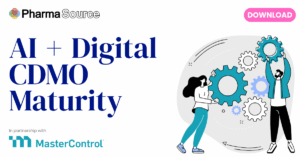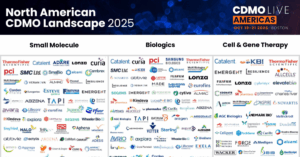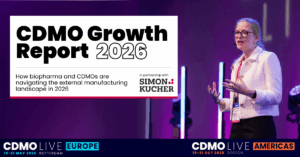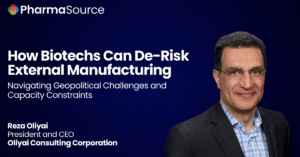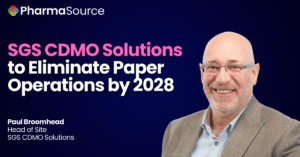“Sustainability is not just a trend; it’s integral to our DNA,” says Teva’s Global Head of Sustainability
Amalia Adler-Waxman, SVP, Global Head of Sustainability and ESG and head of Corporate Affairs of International Markets at Teva Pharmaceuticals Industries, brings a wealth of experience from her roles in government, international affairs organisations, and the pharmaceutical industry. Her unique perspective bridges the gap between public and private sectors, offering invaluable insights into the evolving landscape of corporate sustainability.
Amalia Adler-Waxman’s journey with Teva began in 2016 as a consultant. Since then, she has led the company’s transformation into one of the ‘World’s Most Sustainable Companies’, as recognised by Time magazine.
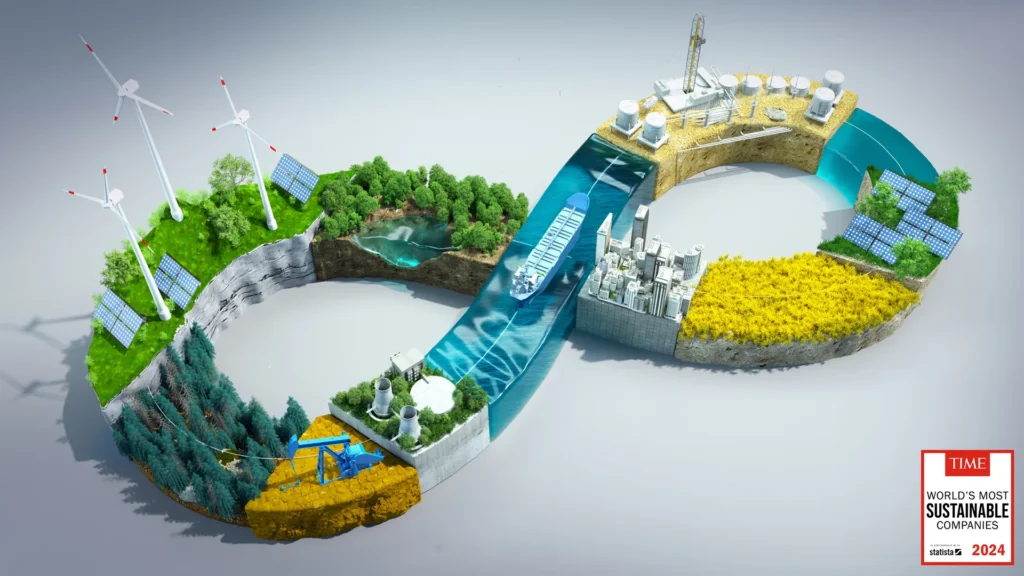
In the latest PharmaSource podcast episode, Amalia explains how Teva’s commitment to sustainability has become a key strategy for driving positive impact and improving business performance.
From CSR to ESG: A Systematic Approach
Teva’s sustainability journey began with a fundamental shift in thinking. “We understood that CSR has evolved to ESG,” Amalia explains. “The whole idea is that it needs to be looked at as seriously as we look at our financial performance in terms of measuring, having goals, and being accountable.”
This systematic approach involved several key steps:
- Materiality Assessment: Teva conducted a thorough analysis to prioritise the most relevant and important sustainability issues for the company.
- Goal Setting: The company established quantifiable goals and metrics to track progress.
- Transparency: Teva committed to continuously evolving its reporting to ensure stakeholders understand their efforts in a simple and real way.
- Corporate Strategy Integration: Sustainability was elevated from a team initiative to a core part of Teva’s corporate strategy.
Amalia emphasises the importance of internal advocacy: “It was first constant advocacy. And when you understand that there are external expectations, it’s very important to use that in a positive way. Reflect back to the organisation what the external stakeholders are expecting of you.”
Decarbonisation: Tackling Scope 1, 2, and 3 Emissions
Teva’s approach to decarbonisation demonstrates the company’s commitment to addressing both direct and indirect emissions:
- Scope 1 and 2: These account for approximately 10% of Teva’s emissions. The company has set robust targets and is ahead of schedule in reducing these direct emissions.
- Scope 3: Accounting for 90% of emissions, this is more challenging as it involves the entire supply chain. Amalia notes, “Without working with the suppliers, we won’t be able to achieve any targets for scope three.”
To address Scope 3 emissions, Teva has implemented several strategies:
- Identifying critical suppliers
- Working closely with suppliers to reduce emissions
- Using tools like EcoVadis for supplier assessment
- Encouraging suppliers to adopt science-based targets
- Balancing emission reduction goals with maintaining supplier diversity
Maintaining ESG Momentum During Global Crises
Teva’s approach to maintaining its ESG agenda during challenging times, such as the COVID-19 pandemic and recent events in Israel, is rooted in its purpose: “We’re all in for better health.” This focus on patient care and employee well-being has guided the company’s actions:
- Prioritising employee safety and support
- Adapting workplaces to meet new safety requirements
- Providing mental health support and resources
- Establishing community support programmes
- Ensuring continuous supply of medicines despite challenges.
Amalia emphasises, “You can’t succeed in ESG if you do this to tick a box and to fill a report or to satisfy an investor. You do it because you really care about your people and the community.”
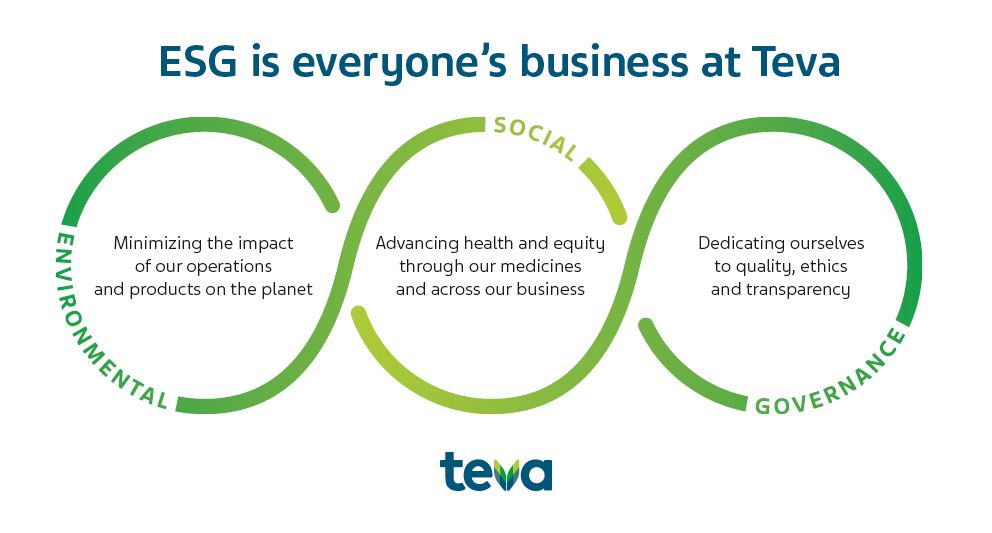
Looking Ahead: Teva’s ESG Priorities for 2025
Teva’s sustainability strategy for the coming years focuses on three key areas:
- Stronger: Continuing to perform well on ESG metrics, preparing for new legislation, and enhancing reporting and transparency.
- Bolder: Focusing on achieving long-term KPIs, setting new access goals, and maintaining strong ethics and compliance.
- Simpler: Integrating sustainability into employees’ day-to-day work, making it “everybody’s business.”
As Amalia reflects on her role, she highlights the personal fulfillment that comes from creating positive impact, working across diverse disciplines, and engaging employees in sustainability efforts.
“It’s critical for employee engagement, recruiting, and maintaining people, because people want to work for companies who are doing good.”

